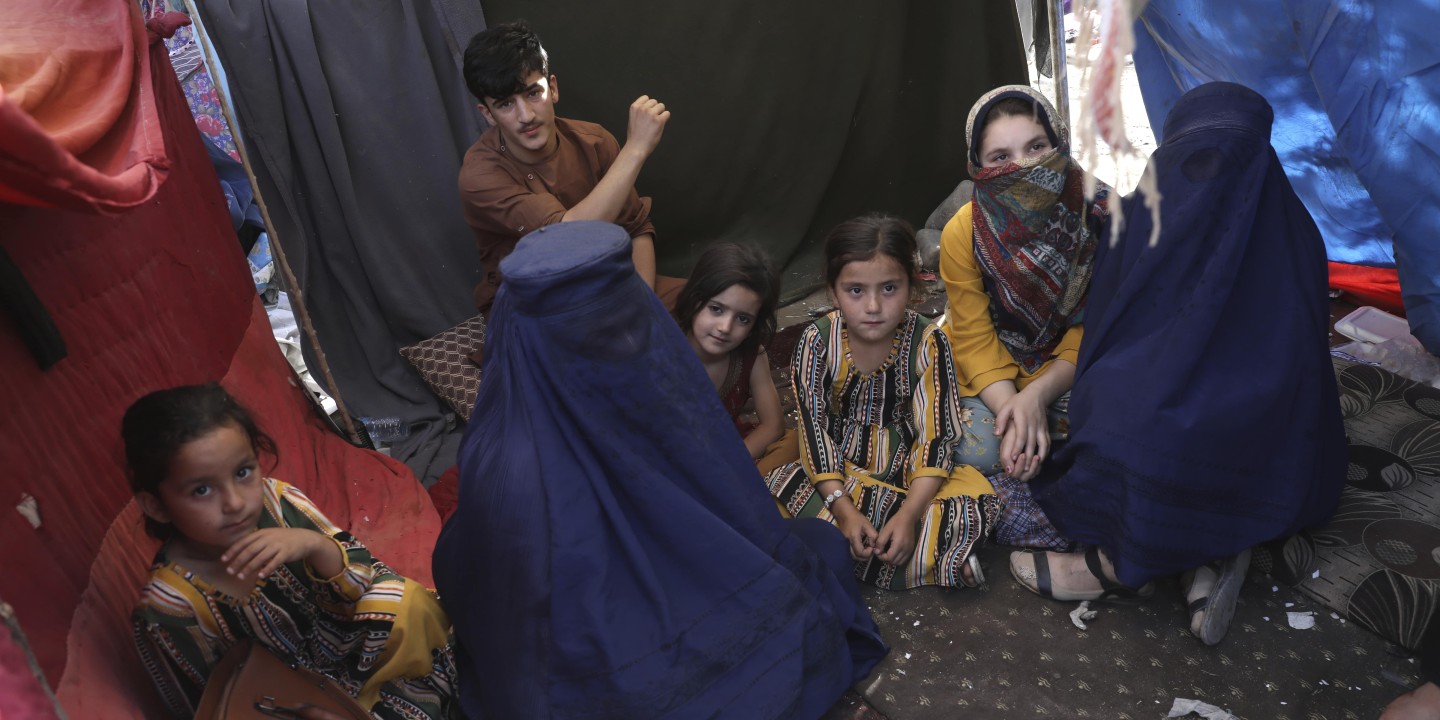Afghan women fear “dark days” amid Taliban sweep

It was early evening, and Zahra, her mother, and three sisters were on their way to dinner at another sister’s home when they saw people running and heard gunshots on the street.
“The Taliban are here!” people screamed.
In just a few minutes, everything changed for the 26-year-old resident of Herat, Afghanistan’s third-largest city.
Zahra grew up in a mostly Taliban-free Afghanistan, where women dared to dream of careers and girls got an education. For the past five years, she has been working with local nonprofit organizations to raise awareness among women and press for gender equality.
Her dreams and ambitions came crashing down on August 12 as the Taliban swept into the city, planting their white flags emblazoned with an Islamic proclamation of faith in a central square as people on motorcycles and in cars rushed to their homes.
“I am in big shock,” Zahra said. “How can it be possible for me as a woman who has worked so hard and tried to learn and advance, to now have to hide myself and stay at home?”
After a lightning offensive over several days in mid-August, the Taliban took control of the country, just two weeks before the US planned to withdraw its last troops.
The UN refugee agency says nearly 250,000 Afghans have fled their homes since the end of May amid fears the Taliban would reimpose their strict and ruthless interpretation of Islam, all but eliminating women’s rights. Eighty percent of those displaced are women and children.
The fundamentalist group ruled the country from 1996 until the US-led invasion in 2001. During that time, it forbade girls an education and women the right to work, refusing even to let them travel outside their homes without a male relative to accompany them. The Taliban also carried out public executions, chopped off the hands of thieves, and stoned women accused of adultery.
In August, there were no confirmed reports of such extreme measures in areas the Taliban fighters had recently seized. But militants were reported to have taken over some houses and set fire to at least one school.
Zahra stopped going to the office about a month ago as the militants approached Herat, after which she worked remotely from home. But ever since Taliban fighters broke through the city's defensive lines, she has been unable to work at all.
Her eyes welled up with tears as she considered the possibility that she will not be able to return to work; that her 12-year-old sister will be unable to continue going to school (“She loves learning”); that her older brother will not be able to play football; and that she won't be able to freely play the guitar again. The instrument hung on a wall behind her as she spoke.
Marianne O’Grady, the Kabul-based deputy country director for CARE International, said the strides made by women over the past two decades have been dramatic, particularly in urban areas. She added that she cannot see things going back to the way they were, even with a Taliban takeover.
“You can’t uneducate millions of people,” she said. If women “are back behind walls and not able to go out as much, at least they can now educate their cousins and their neighbors and their own children in ways that couldn’t happen 25 years ago.”
Still, a sense of dread appeared to be omnipresent, particularly among women, as Taliban forces took more territory each day.
“I feel we are like a bird who makes a nest for a living and spends all the time building it, but then suddenly and helplessly watches others destroy it,” said Zarmina Kakar, a 26-year-old women’s rights activist in Kabul, days before the Afghan capital fell.
Kakar was a year old when the Taliban entered Kabul the first time in 1996, and she recalled an incident under Taliban rule when her mother took her out to buy her ice cream. Her mother was whipped by a Taliban fighter for revealing her face for a couple of minutes.
“Today again, I feel that if Taliban come to power, we will return back to the same dark days,” she said. —Associated Press


